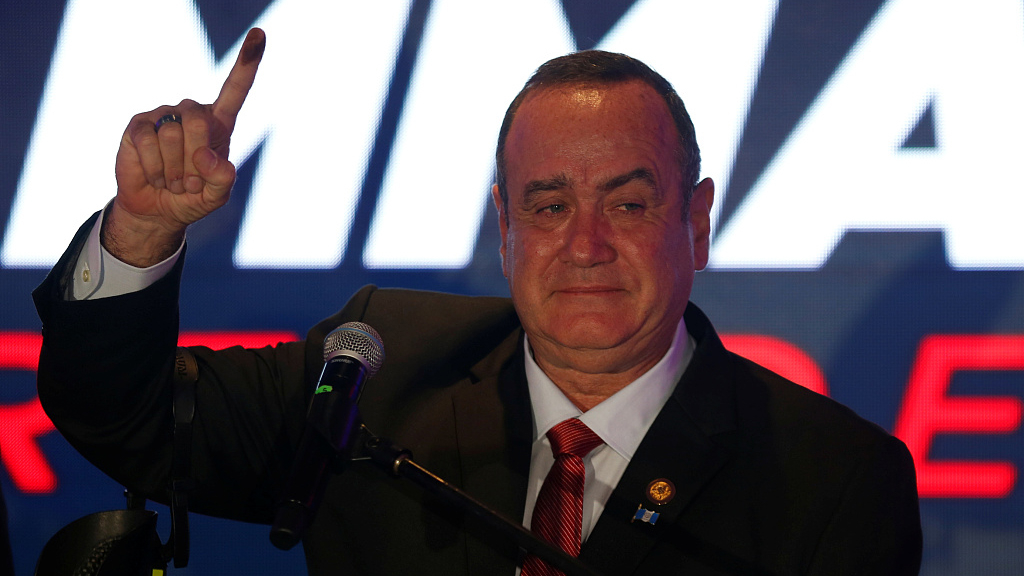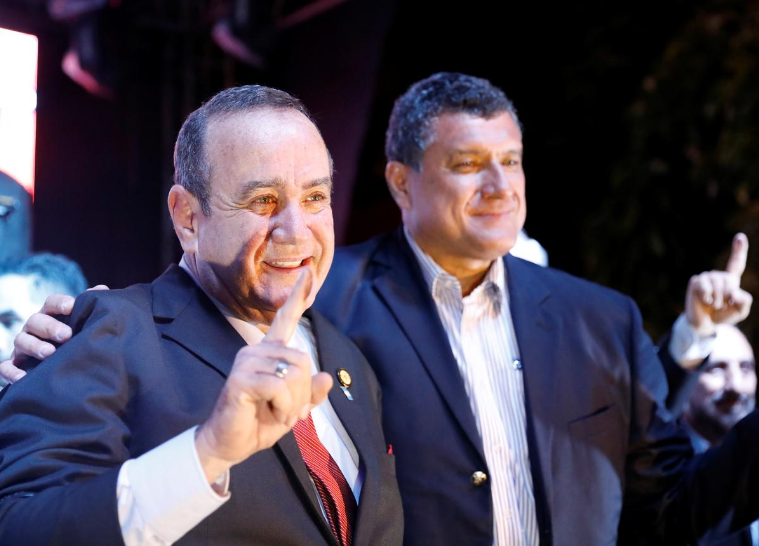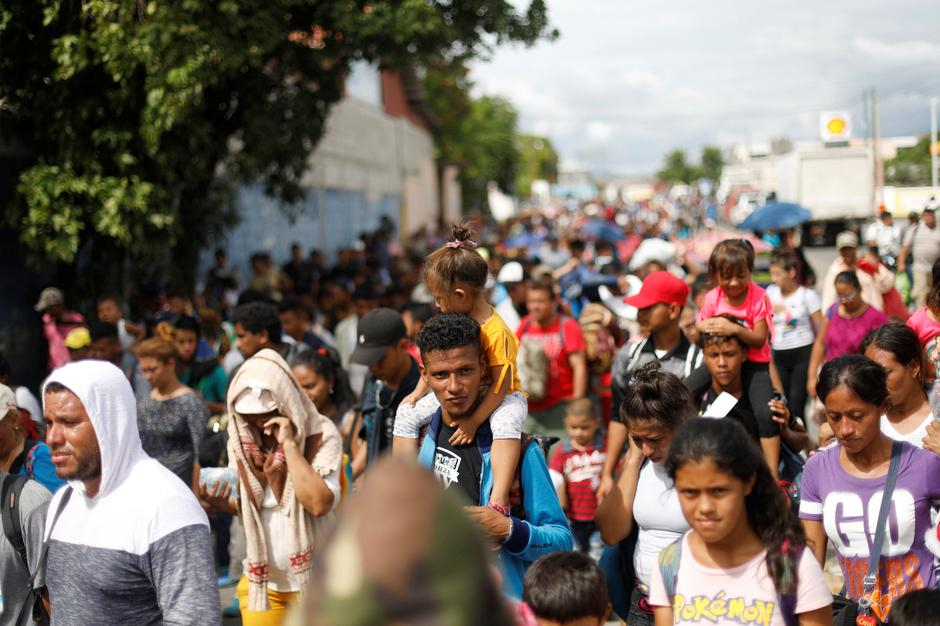
Guatemalan conservative Alejandro Giammattei secured a crushing victory in a presidential election on Sunday, and promised to seek better terms from an unpopular migration deal agreed with Washington in July which would turn his country into a buffer zone despite poverty, corruption and violence plaguing the Central American nation.

With preliminary results from over 99 percent of polling stations counted, Giammattei defeated former first lady Sandra Torres in a run-off Sunday, garnering more than 58 percent of the vote. Torres, a social democrat, won 42 percent.
Read More:
Guatemala elects new president to inherit Trump migration bind
The president of the Supreme Electoral Tribunal, Julio Solorzano, had declared the result "already irreversible" part-way through the count.
Nevertheless, turnout was low and preliminary data indicated more than 55 percent of eligible voters may have abstained, underscoring the challenges facing Giammattei.
"The aim is fulfilled," said Giammattei, a 63-year-old doctor who was defeated in three previous runs for president.

Alejandro Giammattei (L), presidential candidate for the "Vamos" political party, celebrates winning the presidential election at his campaign headquarters in Guatemala City, Guatemala, August 11, 2019. /Reuters Photo
Giammattei will take over in January from corruption-tainted President Jimmy Morales, who congratulated his successor and promised a "transparent and orderly" transition.
He will be under immense pressure from the U.S. to implement a controversial migration pact that would allow the U.S. to send some Honduran and Salvadoran asylum seekers who passed through Guatemala back to the poor, crime-stricken Central American country, an influx it is ill-prepared to receive.
The pact, part of U.S. President Donald Trump's campaign to stem migration at his country's southern border, has proved highly unpopular in Guatemala, with demonstrators blocking roads and occupying the emblematic University of San Carlos.
In a poll by Prodatos for the Prensa Libre newspaper, 82 percent of respondents opposed it.
Guatemala's human rights ombudsman Jordan Rodas questioned its legality, while Amnesty International described it as "cruel and illegal."

Honduran migrants, part of a caravan trying to reach the U.S., walk during a new leg of their travel in Chiquimula , Guatemala, October 16, 2018. /Reuters Photo
Speaking a few hours before being declared the winner, Giammattei said he wanted to see what could be done to improve the deal.
"I hope that during this transition the doors will open to get more information so we can see what, from a diplomatic point of view, we can do to remove from this deal the things that are not right for us, or how we can come to an agreement with the U.S.," Giammattei said.
Threatened with economic sanctions if he said no, Morales reached an accord in late July to make Guatemala a so-called safe third country for migrants.
"It's not right for the country," Giammattei said of the deal. "If we don't have the capacity to look after our own people, imagine what it will be like for foreigners."

Alejandro Giammattei, presidential candidate for the "Vamos" political party, speaks as he takes the lead during vote counting in the presidential election in Guatemala City, Guatemala, August 11, 2019. /Reuters Photo
Taking over a country also struggling with a 60-percent poverty rate, Giammattei has promised to erect an "investment wall" on the border with Mexico to curb migration. He has also proposed bringing back the death penalty.
Many Guatemalans are fed up with the political class after investigations by the International Commission against Impunity in Guatemala (CICIG), a UN-backed anti-corruption body, led to the arrest of then-President Otto Perez in 2015, and then threatened to unseat his successor Morales.
Giammattei pledged to run an honest government as he voted. "We'll battle corruption from the very first day," he said.
Morales, who ordered the termination of the CICIG’s mandate as of September, was barred by law from standing again.

Copyright © 2018 CGTN. Beijing ICP prepared NO.16065310-3
Copyright © 2018 CGTN. Beijing ICP prepared NO.16065310-3